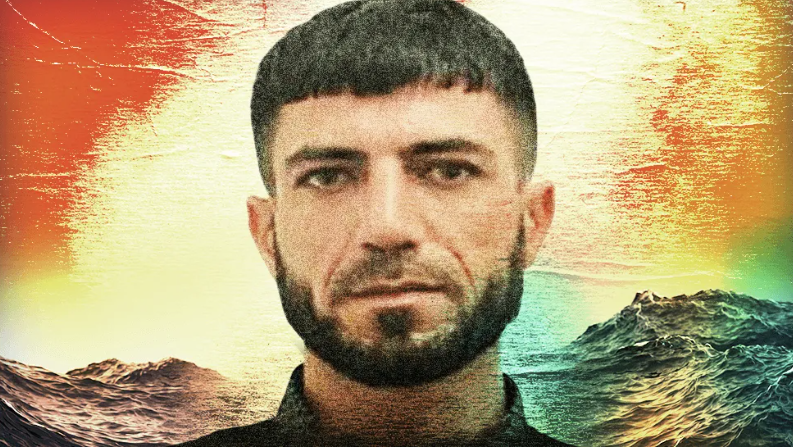Migrant-smuggler arrested after BBC investigation

- Published
One of Europe’s most notorious people-smugglers has been arrested in Iraq following a BBC investigation.
Barzan Majeed was arrested in Iraqi Kurdistan on Sunday morning, a senior government official said.
For several years, he and his gang were heavily involved in the people-smuggling trade - in boats and lorries - across the English Channel.
The BBC tracked down Majeed - also known as Scorpion - to the city of Sulaymaniya, where he said he had transported thousands of migrants across the channel.
“Maybe a thousand, maybe 10,000. I don’t know, I didn’t count,” he said.
How we found Europe’s most wanted migrant-smuggler
- Published10 May 2024
A senior member of the Kurdistan Regional Government said that officials were able to use the BBC's findings to locate Majeed.
“It was at 7am this morning that the arrest was made outside his home, they arrested him the moment he stepped out of the home and arrested him without any major problems,” the official said.
“We are now looking at charges against him here first and foremost, and then we will be discussing with European police and prosecutors who want to question him and deal with him.”
The UK’s National Crime Agency (NCA) also confirmed the arrest.
"We are grateful to the BBC for highlighting his case, and remain determined to do all we can to disrupt and dismantle the criminal networks involved in smuggling people to the UK, wherever they operate,” it said in a statement.
Between 2016 and 2021, Scorpion's gang is believed to have controlled much of the people-smuggling trade between Europe and the UK.
A two-year international police operation resulted in convictions for 26 members of the gang at courts in the UK, France and Belgium.
But Scorpion himself evaded arrest and went on the run.
In his absence, he was tried in a Belgian court and convicted of 121 counts of people-smuggling. In October 2022, he was sentenced to 10 years in jail and fined €968,000 (£834,000).

Majeed in 2012, working as a car mechanic in Nottingham
Scorpion’s whereabouts were unknown, until the BBC found him.
In a call in April, Majeed seemed to show little sympathy for drowned migrants.
“God [writes it down] when you’re going to pass away, but this is sometimes your fault,” he said. “God doesn’t never say ‘Go inside the boat’.”
He eventually agreed to meet at a mall in Sulaymaniyah.
Here he denied being a big player at the top of a criminal organisation. He said other gang members had tried to implicate him.
“A couple of people, when they get arrested, they say, ‘We’re working for him’. They want to get less sentence.”
Majeed then invited Rob Lawrie, a former soldier who works with refugees and worked with the BBC on the investigation, to see the money exchange he worked from in Sulaymaniyah.
“Nobody forced them. They wanted to,” he said. “They were begging the smugglers, ‘Please, please do this for us.’ Sometimes the smugglers say, ‘Just because of the sake of God, I will help them.’ And then they complain, they say, ‘Oh this, that...’ No, this is not true.”
Ann Lukowiak from the public prosecutor's office in Belgium welcomed the news of his arrest.
"At last we have a chance of seeing justice done in this case, of having him directly face his crimes and answer for them.”

BBC journalist, Sue Mitchell, and volunteer aid worker, Rob Lawrie go on a dramatic hunt for one of Europe's most-wanted crime bosses. Code-named Scorpion, he's smuggled thousands of people into the UK and is on the run.
